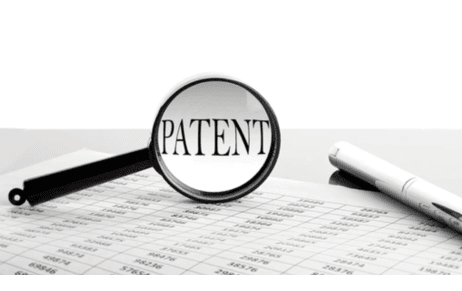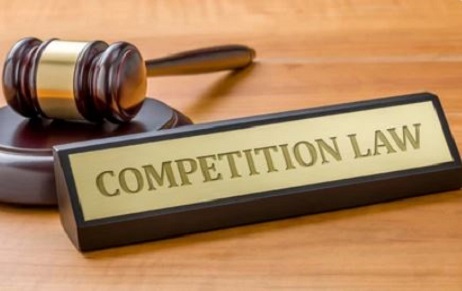Introduction In the realm of obtaining a patent right, conducting a ‘novelty search’ stands as…
Patent Trolling and Fee-Shifting
Manish Kumar, the intern at Khurana and Khurana, Advocates and IP Attorneys, looks at the ‘fee-shifting’ paradigm in US Patent Act in light of US Supreme Court’s recent judgments.
The US Supreme Court, in its two recent judgments, has re-instituted its pre-2005 stand where the Courts had the discretion of awarding reasonable attorney fees to the prevailing party and base their decisions in patent suits subjectively on case to case basis rather than on rigid and stringent conditions.
This stance of the Supreme Court has made the life of so-called “patent trolls” difficult as they will not be allowed to bully other patent-holders or manufacturers in courts. These are the companies that bring lawsuits against small business entities with respect to their broad, substantially related, or probable invalid patents or products. In such a condition, it becomes more viable for these victims to settle the suit compromising their patent rights or seek a license and save themselves from otherwise expensive and arduous lawsuits.
History of 35 USC 285
Prior to the 1946 amendment of the Patent Act, the American rule for awarding of attorney’s fee to the prevailing party in patent litigation did not exist and was governed by Marx v. General Revenue Corp., 568 U. S. 1946 that stated ‘[E]ach litigant pa[id] his own attorney’s fees, win or lose . . . .’ The 1946 amendment of the Patent Act incorporated section 70 in the Act that added a discretionary fee-shifting provision. The provision stated that a court “may in its discretion award reasonable attorney’s fees to the prevailing party upon the entry of judgment in any patent case.” The courts viewed this provision not as a ‘penalty for failure to win a patent infringement suit’ but as appropriate ‘only in extraordinary circumstances.’ The majority use of this discretion was based on ‘unfairness or bad faith in the conduct of the losing party, or some other equitable consideration of similar force.’ It was always difficult to enforce since it required adequate justification and establishing fraud practiced on the patent office or vexatious litigation.
The fee-shifting provision of the Patent Act was recodified as 35 USC 285 as “the court in exceptional cases may award reasonable attorney fees to the prevailing party.”The whole debate now shifted to the qualification of ‘exceptional cases.’ The courts, for the next three decades, ignored the amendment and continued with its previous position under section 70 of the Act. After 1982, district courts started considering the patent suits in the totality of the circumstances when taking decisions under 35 USC 285.
This continued until the US Federal Court decided Brooks Furniture Mfg., Inc. v. Dutailier Int’l, Inc., 393 F. 3d 1378 (2005), where the US Supreme Court took a more mechanical and rigid formulation which overruled earlier holistic and equitable approach. The court put forth the following two conditions to be qualified for awarding fee to the prevailing party’s attorney’s fee:
1) The litigation is brought in subjective bad faith, and
2) The litigation is objectively baseless.
The Court stated that the case is to be considered as ‘exceptional’ under section 285 only when there has been material inappropriate conduct related to the matter in litigation, such as willful infringement, fraud or inequitable conduct in procuring the patent, misconduct during litigation, vexatious or unjustified litigation. The litigation was considered to be ‘objectively baseless’ if it is ‘so unreasonable that no reasonable litigant could believe it would succeed.’
Recent Position
The US Supreme Court decided the two cases, Octane Fitness, LLC v. Icon Health and Fitness, Inc. and Highmark Inc. v. Allcare Health Management System, Inc., on April 29, 2014, that have loosened the restriction on patent lawsuit fee-shifting provision of US Patent Act.
The cases can be found here (Octane) and here (Highmark).
In Octane Fitness, LLC v. Icon Health and Fitness, Inc.both the parties are manufacturers of exercise equipment. The respondent, Icon Health & Fitness, Inc., owns U. S. Patent No. 6,019,710 (’710 patent), which discloses an elliptical exercise machine that allows for adjustments to fit the individual stride paths of users. The icon is a major manufacturer of exercise equipment, but it has never commercially sold the machine disclosed in the ’710 patent. Octane Fitness, also manufactures exercise equipment, including elliptical machines known as the Q45 and Q47. Icon sued Octane, alleging that the Q45 and Q47infringed several claims of the ’710 patent. The District Court granted Octane’s motion for summary judgment on June 17, 2011, concluding that Octane’s machines did not infringe Icon’s patent. Octane then moved for attorney’s fees under 35 US 285. Applying the Brooks Furniture standard, the District Court denied Octane’s motion on September 6, 2011. It determined that Octane could show neither that Icon’s claim was objectively baseless nor that Icon had brought it in subjective bad faith. As to objective baselessness, the District Court rejected Octane’s argument that “judgment of non-infringement should have been a foregone conclusion to anyone who visually inspected Octane’s machines”.
In Highmark Inc. v. Allcare Health Management System, Inc. case, Allcare owned Patent No. 5,301,105 (‘105 patent), which covers “utilization review” in “‘managed health care systems.” Highmark Inc., a health insurance company, sued Allcare seeking a declaratory judgment that the ’105 patent was invalid and unenforceable and that, to the extent it was valid, Highmark’s actions were not infringing it. Allcare counterclaimed for patent infringement. Both parties filed motions for summary judgment, and the District Court entered a final judgment of non-infringement in favor of Highmark.
Highmark then moved for fees under section 285 for fee-shifting. The District Court granted Highmark’s motion. The court reasoned that Allcare had engaged in a pattern of “vexatious” and “deceitful” conduct throughout the litigation. The district court awarded the Highmark attorney’s fees together with other damages.
Allcare moved to Supreme Court against the judgment to which the Court partly agreed. It affirmed the District Court’s exceptional-case determination with respect to the allegations that Highmark’s system infringed one claim of the ’105 patent but reversed the determination with respect to another claim of the patent. In reversing the exceptional-case determination as to one claim, the court reviewed it de novo. The court held that because the question of whether litigation is ‘objectively baseless’ under Brooks Furniture ‘is a question of law based on underlying mixed questions of law and fact,’ an objective-baselessness determination is reviewed on appeal de novo and ‘without deference.’ It then determined, contrary to the judgment of the District Court that ‘Allcare’s argument’ as to claim construction was not ‘so unreasonable that no reasonable litigant could believe it would succeed.’
Conclusion:
Both the issues were to be decided regarding the attorney’s fee in which the prevailing parties (Octane and Highmark respectively) in the respective cases demanded the fee-shifting towards the losing parties. The court looked into the issue of law and upon the due consideration sent it back to the district court for reconsideration of the issue by instructing that the court should not decide on the basis of the Brooks Furniture case, but take a more subjective approach. Thus, the present stand (as against the decision of Brooks Furniture case) of the US Court is toward fee-shifting is more liberal and subjective.
Although there is another angle to this judgment that now that the fee-shifting is to be considered subjectively, the patent holders may restrain themselves from bringing suits even for their legitimate claims since it is never sure that the courts will be in their favor. Each case will have a different notions and different courts may decide the same case differently, giving different justification for their subjective interpretation of the case. Therefore, these decisions of the US Supreme Court, on one hand, will restrict frivolous patent lawsuits; on the other hand, it may encourage ‘patent trolls’ to strike more settlements and licensing than ever.



